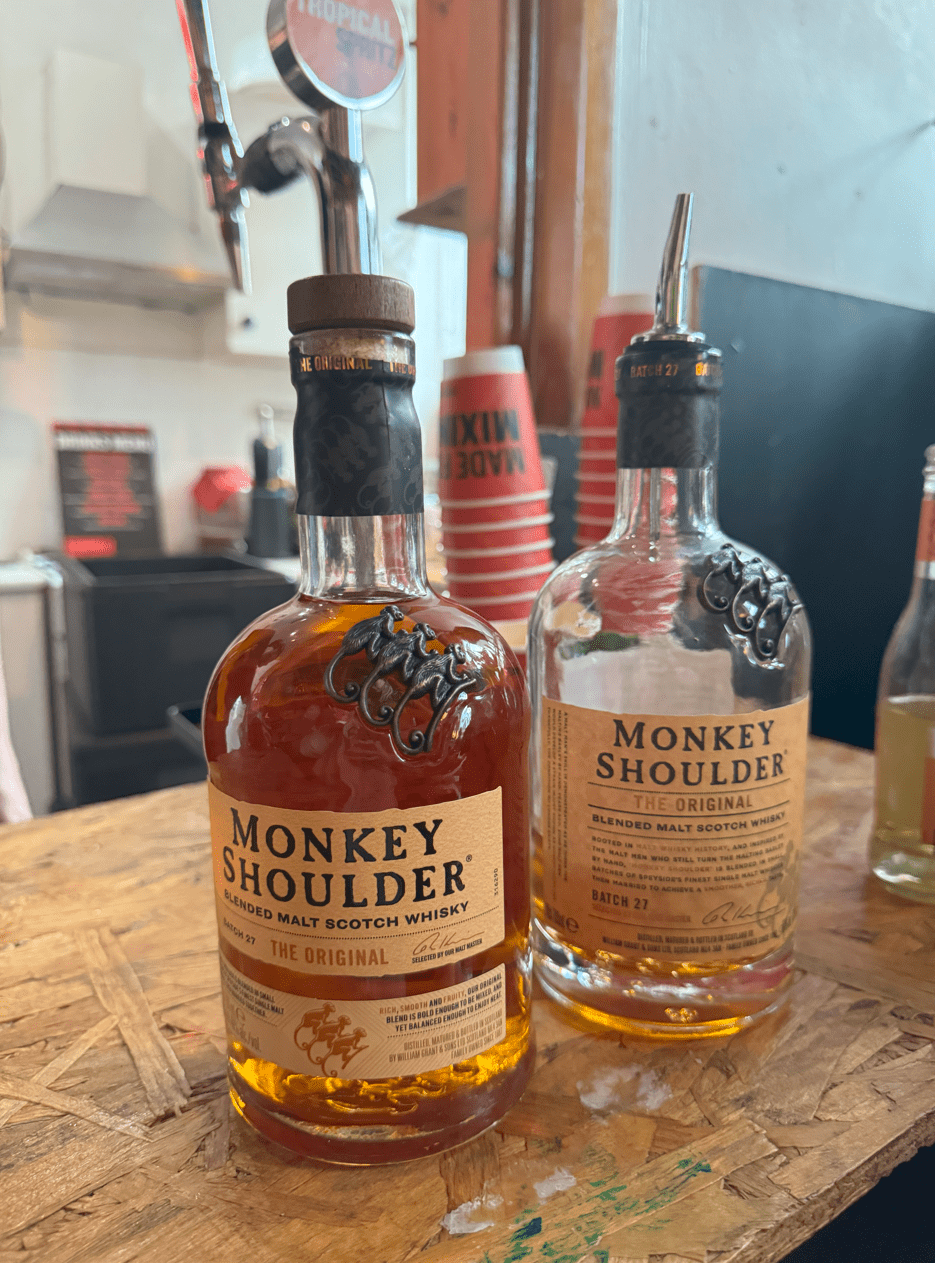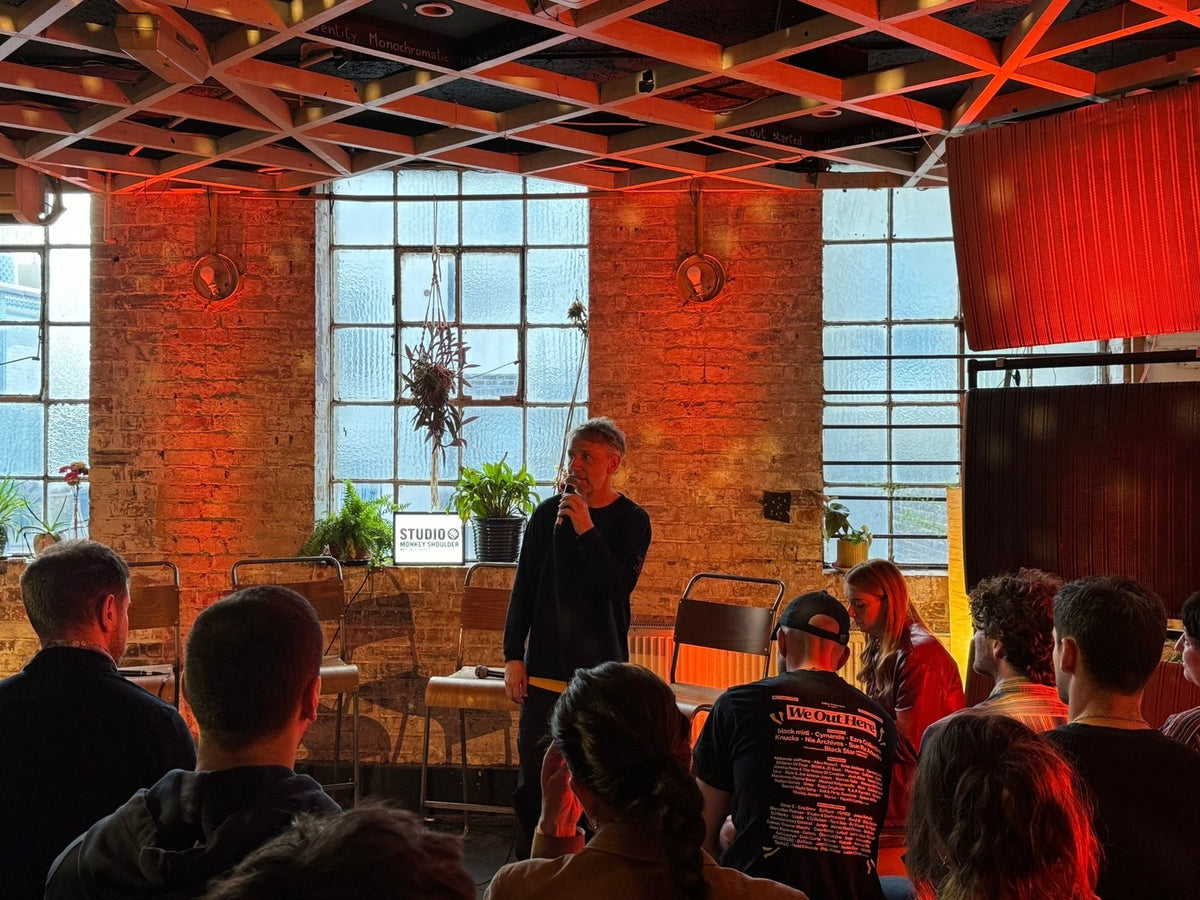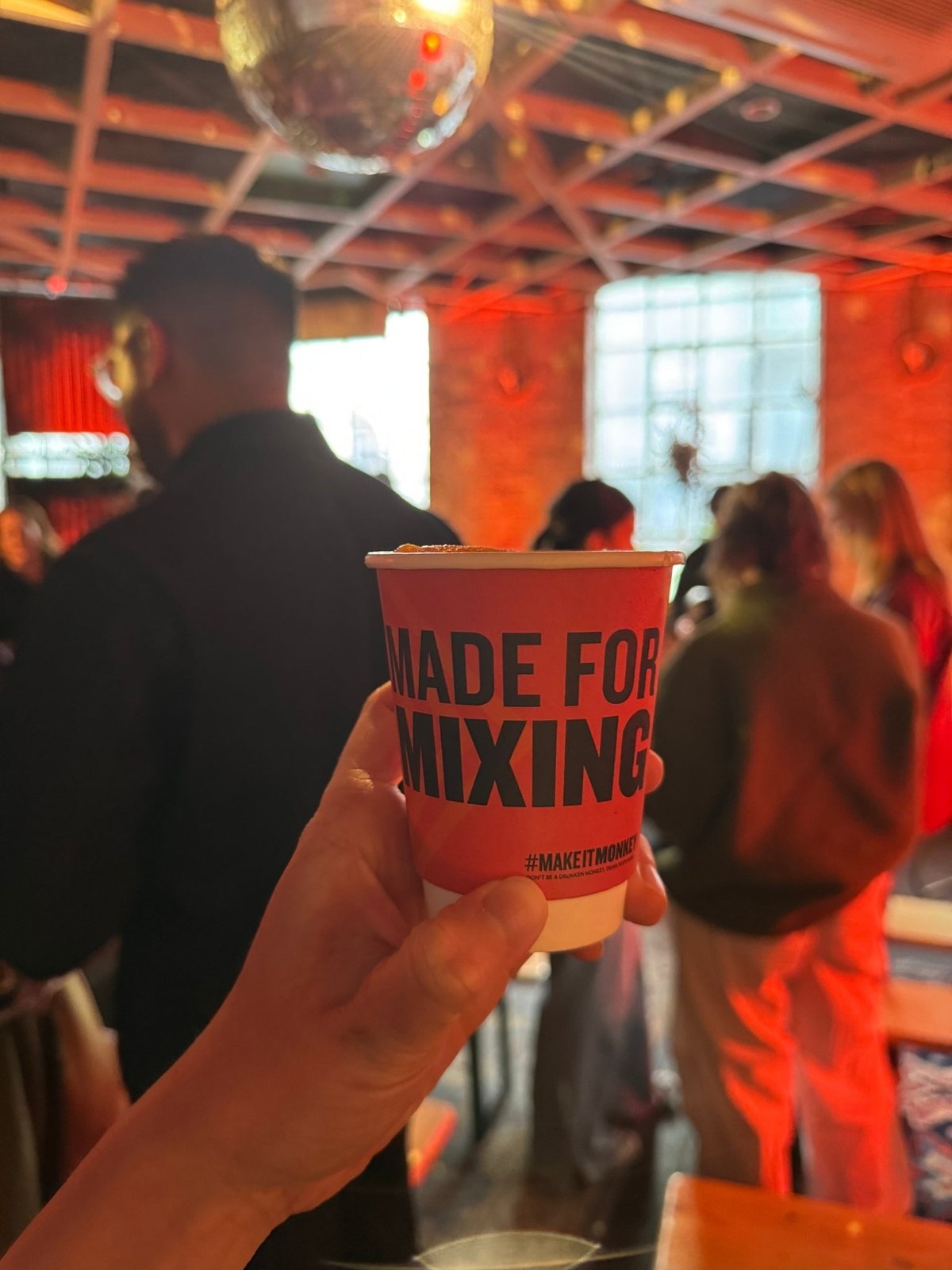When was the last time you went out to a nightclub? Enjoyed live grassroots music? Or visited an independent record store? If the data is anything to go by, probably not for some time. It’s a topic that was at the forefront of conversation at the Studio Monkey Shoulder launch. Music and whisky gathered together at pioneering event venue, record label and creative space, Total Refreshment Centre in East London, last week to hear more.
The challenges faced by grassroots music aren’t due to a lack of demand. According to the panel of industry experts at the kick-off, it’s down to a potent mix of a harsh economic landscape underpinned by capitalism, classism, and a gross undervaluing of culture. So much so that since the onset of the pandemic, 35% of all independent nightclub businesses in the UK have been lost.
It’s a complicated problem – and to an extent, money can help solve it. “It’s a means to an end,” said Sunny Paradisos, a Bristol-based musician and campaigner. His Save the Rhubarb Tavern Campaign is hoping to bring the pub back to life as a music venue and community hub. “Without the security that money brings, it can feel like you don't have anything, essentially.”
For Josh Aitman, the co-founder of Liverpool’s Melodic Distraction Radio, the barriers to access money is also a real challenge. “The knowledge of how to apply to that is a really, really difficult thing,” he added. It takes up valuable time and energy – resources that should be spent creating and connecting.
Top Bottles From Diageo Special Releases 2024

A Fund for 'Trailblazers'
This is where Monkey Shoulder comes in. The blended Scotch brand has partnered with Worldwide FM, the radio station founded by DJ Gilles Peterson, to create Studio Monkey Shoulder. Its aim is to bring marginalised voices to the forefront, and that starts at grassroots level. As such, it is opening fund which will see £10,000 go to five projects, one each in the UK, US, Nigeria, India and Taiwan.
Applications are open to creatives across the music sphere: independent record stores, live venues, DJs, radio stations and more. “We want to support the trailblazing communities where people connect, create and discover music,” according to the campaign. It’s exciting – especially when the money will also be supercharged by practical support from both Monkey Shoulder and Worldwide FM. The winners will also see their stories told through films, events, and radio broadcasts, too.
There was a note of caution from Alex Rita, co-founder of dance series, record label and NTS Radio residency Touching Bass. She wants to see a reality where grant recipients maintain creative control. “If someone wants to invest in us, what expectation do they have? Do we have to sell for them down the line?” she asked. “We’ve done one branded thing in all our time because we’re just so scared.” I asked Monkey Shoulder via their representatives for the brand’s perspective here and haven’t yet heard back.

“We want to support the trailblazing communities where people connect, create and discover music.” - DJ Giles Peterson

'Cultural Profit'
Creative freedom aside, once money is secured, it’s a done deal, right? There’s another battle to fight too, according to the panel. Culture – at least in the UK – is undervalued. And where this disregard meets classism, there’s an uphill battle.
"People tell stories about ballet or opera, or art,” explained music journalist and author, Emma Warren. “No-one questions whether that stuff is culture. But people question whether or not a dance in a bakery in Peckham is culture. Or if a radio station in Liverpool or a pub in Bristol is culture. We know it is.” She advocates for reframing these elements, documenting them. “It gives a stamp of approval that broader society isn’t going to.”
She continued: “The world we’re probably all involved in deal with cultural profit, social profit.” It’s separate from the financial. “Profit is only one kind of profit, but it's the only profit that is evident, visible valued. The stuff we do is invisible." It’s profitable personally, culturally and socially.
One final question: what’s this all got to do with whisky? While Monkey Shoulder has been associated with music for some time, it feels like an oddmove for the spirit more broadly. Especially at a time where stereotypes about who drinks whisky – read: older white men – still prevail.
For Warren, there’s a sense of culture that unites both worlds. People don’t link whisky with UK club culture, she told me after the panel discussion. “I most associate it with community culture in Ireland,” she said, referencing her personal roots. While it might not seem like the most immediate link, it’s a move from Monkey Shoulder that gives whisky a relevancy to most likely fresh audiences.
Applications for Studio Monkey Shoulder are open now. Written and video submissions are welcome with a closing date of 9 May. Successful projects will be notified by 31 May.Find out more here.

Monkey Shoulder
Malt whiskies expertly blended with cocktails in mind. Deliciously creamy when sipped neat, with apple, peach, sweet spices and soft toffee notes. Perfect with ginger ale in a Highball glass garnished with an orange wedge.

Buy ANYTHING this Black Friday period and be in with the chance to win a bottle of Pappy Van Winkle 15 Year Old!
We’ve got 15% off almost everything. We’ve got delicious daily deals on top of that....
Nov 25, 2025

The life, love and flavour lessons from a whisky and sweets pairing
From sparks-flying compatibility to meh-blandness, whisky- and food-pairing can be a lot like dating. This...
Aug 14, 2025

Must-taste Islay whiskies for 2025
As Fèis Ìle, the annual celebration of Islay malt and music, approaches, we explore the...
May 20, 2025

Five of our favourite wine cask-influenced whiskies
Wine cask maturation can pack a full-flavour punch. Here’s why these casks can be so...
May 13, 2025




